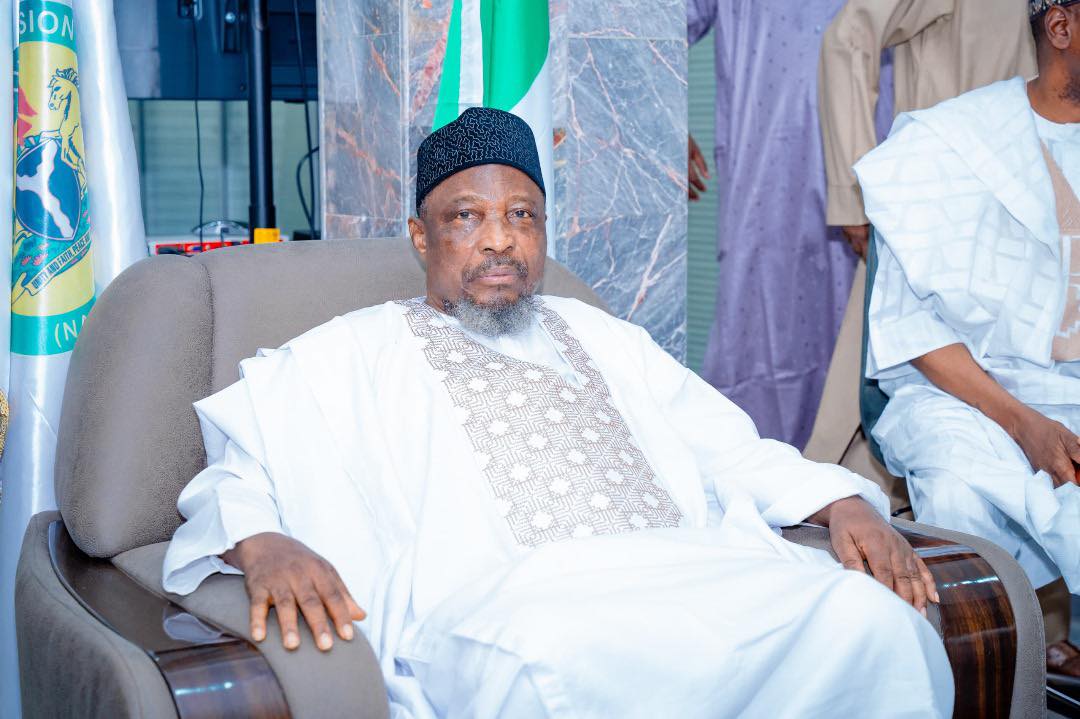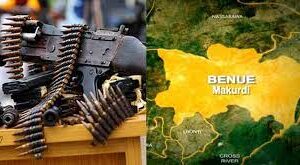As controversial as this article may be, and as it may have been construed by those who felt that Nnamdi Kanu should behave like a zombie in the midst of injustice, I implore you to engage with the points raised rather than resorting to silence or attempting to justify the unjustifiable. It’s crucial to address the glaring disparity in the Nigerian justice system, where an individual advocating for self-determination is incarcerated for years without a definitive trial, while perpetrators of violence, who have inflicted immense suffering on innocent Nigerians, are granted amnesty.
The act of raising hands and declaring repentance, often under a carefully orchestrated government publicity stunt, shouldn’t absolve one from the consequences of their actions, especially when their crimes involve the loss of lives, displacement of communities, and widespread trauma. How can one fathom the criteria used by the Nigerian Defence Headquarters to publicly declare in Agenda Newspaper of 11th February, that 800 Boko Haram fighters (terrorists) are now undergoing deradicalization for reintegration into the society? We are using our commonwealth to feed and rehabilitate terrorists in Nigeria while MNK and many Nigerians with minor offences are languishing in jail and IDP camps.
What kind of country will feed its enemies while traumatising its innocent citizens? Many may criticize Nnamdi Kanu’s approach, deeming it too confrontational or radical, but it’s undeniable that he has consistently challenged the status quo and brought to light the systemic marginalization and injustices faced by Nd’Igbo and many vulnerable Nigerians. His unwavering stance, even when faced with what many consider as an unlawful abduction and detention, speaks volumes about his commitment to his beliefs and his people.
The Nigerian government’s handling of the situation, particularly the prolonged detention without a fair trial, raises serious concerns about the suppression of dissent and the erosion of fundamental human rights. The fact that this occurs under the watchful eyes and often with the tacit approval of some Igbo individuals, driven by personal gain and political expediency, further exacerbates the situation. This betrayal from within the Nd’Igbo adds another layer of complexity to an already sensitive and volatile issue.
On the 10th of February, MNK made the decision to defend himself in the High Court of Abuja, a move that sparked significant controversy in Nigeria. Many citizens chose to focus on a seemingly minor detail – MNK’s request for his lawyer to remain silent – rather than the substance of the legal proceedings and the implications for justice and human rights in Nigeria. This fixation on a trivial matter while overlooking the core issue reflects a disturbing trend in Nigerian society, where individuals facing oppression are expected to exhibit unwavering civility and deference to a system that consistently fails to uphold their fundamental rights. The outrage directed at MNK for his assertive behaviour towards his lawyer is particularly jarring considering the circumstances.
A man whose freedom has been compromised, potentially unjustly, should not be held to unreasonable standards of decorum, especially when confronting a legal system plagued by allegations of corruption and manipulation. The suggestion that MNK should humble himself and plead for rights that should be inherently guaranteed further underscores the deeply ingrained culture of subservience that pervades Nigerian society. This incident lays bare the disheartening reality of Nigerian cowardice. The Nigerian state, instead of serving as a guarantor of citizen safety and rights, often operates as a perpetrator of injustice.
Yet, instead of collectively challenging this oppressive system, citizens often endure the tyranny of corrupt leaders and institutions with a sense of resignation and fear. This fear is rooted in a pervasive belief that those in positions of power – judges, politicians, security forces – hold absolute authority over their lives. This misplaced reverence for authority has crippled the collective spirit of Nigerians, stifling their ability to demand accountability and challenge the status quo.
You can harbour feelings of admiration or disdain for MNK, but one undeniable truth remains: he has courageously confronted a corrupt system with unwavering resolve. This act of defiance embodies the sentiment that true heroes face death once, while those who cower in fear experience a slow and agonizing demise with each act of submission. In a system riddled with anomalies and injustices, one need not conform to societal expectations to challenge its flaws. Therefore, MNK’s unrestrained display of emotion in court, devoid of pretense or guardedness, holds merit. Nigeria today is unfortunately teeming with individuals who, even in the face of oppression, adopt a posture of helplessness and resignation.
They resemble victims of malnutrition, desperately pleading for meager scraps from the table of their oppressors. It begs the question: is it rational, is it even human, for the oppressed to grovel and beg for their fundamental rights to voice their grievances, to merely exist peacefully within the borders of their own nation? The tragic irony of MNK’s situation lies in the realization that the very people he seeks to liberate are often his harshest critics. They attempt to discredit him, branding him as arrogant and self-righteous.
Yet, they have never endured a fraction of the suffering he has faced. They are quick to pass judgment on his impassioned responses to a judicial system that appears more interested in perpetuating oppression than delivering justice. They fail to recognize the deliberate attempts to frustrate the legal process, the selective application of laws that seem tailored to ensure his continued detention since his abduction from Kenya. The events of February 10th sparked a media frenzy, dominating headlines across social and mainstream platforms. However, the focal point of this widespread coverage was not the injustice served by the court, but rather the defendant’s very public reprimand of his lawyer.
This incident ignited a firestorm of commentary on social media, yet the conversation tragically overlooked the deeper issue at hand: a demonstrably flawed judicial system. This situation serves as a stark illustration of the issues Dele Farotimi dissects in his book, “NIGERIA AND ITS CRIMINAL JUSTICE SYSTEM.” Nigeria, unfortunately, has become a stage for a tragicomedy. While individuals in positions of power exploit and oppress the populace, the expected resistance is replaced with a perverse acceptance.
Instead of confronting this corrupt regime, many choose to document and even celebrate the perpetrators, further normalizing their harmful actions. The public readily condemns individuals like Nnamdi Kanu for their impassioned outbursts, yet remains silent when confronted with blatant judicial misconduct. This selective outrage underscores a dangerous societal trend: a willingness to criticize individual actors while turning a blind eye to the systemic rot that enables their behaviour. MNK, a figure of immense controversy, stands accused and imprisoned, his life seemingly on the line for the very people he champions for their freedom.
His unwavering commitment to his cause, despite facing constant opposition from those he seeks to liberate, speaks volumes about his character. Whether one views him as a hero or a villain, one thing remains undeniable: the government holding him captive seems to lack a clear understanding of his alleged crimes, raising serious questions about the legitimacy of his detention. History has a way of revealing truths that were once shrouded in doubt and manipulation. MNK’s unwavering commitment to his principles, even when offered freedom in exchange for betraying his conscience and his people, suggests a man of deep conviction.
When the dust settles, it is highly probable that history will remember him not as a criminal, but as a man of the people who was unjustly persecuted. The very individuals who today brand him as a traitor and work against his cause, those who prioritize personal gain over the collective good, will likely find their reputations tarnished, their names etched in the annals of history as collaborators in the suppression of Nd’Igbo’s pursuit of freedom. This situation transcends MNK as an individual; it serves as a potent symbol of the larger struggle for justice and equity in Nigeria.
All Nigerians, irrespective of their tribal affiliations, religious beliefs, or political leanings, have a moral obligation to stand united against any form of judicial malpractice. To remain silent in the face of injustice is to be complicit. What begins as an attack on a perceived enemy can quickly morph into a weaponized system used against anyone who dares to challenge the status quo. By collectively condemning such acts, Nigerians can pave the way for a society where justice, fairness, and ethical conduct prevail.
It is within such an environment that true freedom can flourish, where every citizen can live without fear of persecution and enjoy the fundamental rights and liberties they deserve. As I conclude, let us remember that the pursuit of peace and justice requires unwavering courage and a commitment to speaking the truth to power, even when it is difficult. It’s only then that we can all breathe the air of freedom, and be free indeed as true citizens of Nigeria, even as I come in PEACE.




 1 week ago
41
1 week ago
41








 English (US) ·
English (US) ·